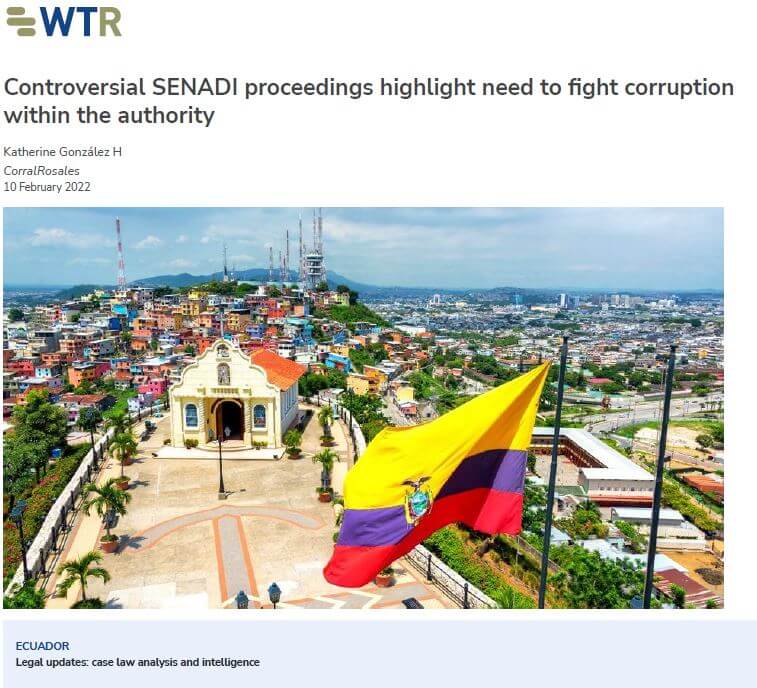DETAILS
MEDIA:
– WTR
The National Intellectual Rights Service (SENADI hereinafter) in Ecuador is in the news for the questionable decision made when registering a trademark. Our associate Katherine González has written about this specific case for WTR, an article that we summarize below.
On 10 June 2020, Quirovara Tax Company SA applied for the mark DON BENJA (and logo) in Class 31, specifically “bananas and Musaceae.” On the other hand, Arbelaez Valencia Hermanos Coffee Roaster Mejía SA filed an Andean opposition based on the trademark DON BENJA, which covers the following goods of Class 31: “agricultural, horticultural, forestry products and grains not included in other classes; live animals; fresh fruits and vegetables; natural plant and flower seeds; animal feed; malt.”
In November, SENADI began its unusual registrability study: rejected the Andean opposition, and granted, to everyone’s surprise, the registration of DON BENJA trademark for class 31, in favor of Quirovara company. In its resolution, SENADI:
- Accepted that the marks were similar;
- Accepted that the marks protected the same goods;
- Acting ex officio, and against the applicable Andean law, reviewed a webpage and used this information to determine the main economic activity of the opponent, ignoring the goods listed in the registration certificate that was the basis of the opposition; and
- Accused the opponent of trying to arbitrarily extend the protection of its trademark in relation to its commercial activity, again ignoring the basis of the opposition and the protection granted by the trademark.
Regarding the registrability of trademarks, Article 136 of Decision 486 of the Andean Community establishes as follows:
“Those signs whose use in commerce unduly affects a third party’s right may not be registered as trademarks, in particular where:
- They are identical or similar to a trademark previously applied for registration or registered by a third party, for the same products or services, or for products or services in respect of which the use of the trademark may cause a risk of confusion or association (…)“
SENADI´s resolution
“On 8 December 2021, SENADI issued a resolution stating that an adequate trademark comparison had not been carried out, and requested the highest administrative Authority, through an ex officio review procedure, to decide whether the applied-for mark should be granted. This request implies that the parties were denied appeal rights, as the appeal authority would already have issued a decision.” Katherine states.
Seven days later, SENADI annulled the office action as being “inadmissible”. It found that it contravened Article 76 of the Constitution. The next day, on December 16, 2021, through Resolution No SENADI-2021-RS-14973, accepted the voluntary cancellation of the trademark DON BENJA by Quirovara. The cancellation request had been filed only the day before.
This situation is surprising, since, as mentioned by our associate, “Usually, the voluntary cancellation process takes between six and 12 months; however, in this case, this request was submitted and accepted within 24 hours.” She also adds that “It is noteworthy that the agent who filed the mark in dispute was the SENADI director deciding on the matter, who immediately resigned after the resolution became public.”
Conclusion
For González, this case highlights the urgent need for SENADI to:
- Train its officials so that all actions are carried out in accordance with national and Andean regulations;
- Strictly apply the legal norm requiring the processing of cases in a chronological order; and
- Fight strongly against corruption.
“If these recommendations are applied, it is expected that the negative impact on users will decrease considerably, the quality of SENADI’s decisions will improve, and its reputation will recover”, she concludes.
If you want to read the complete news (under registration), click here







